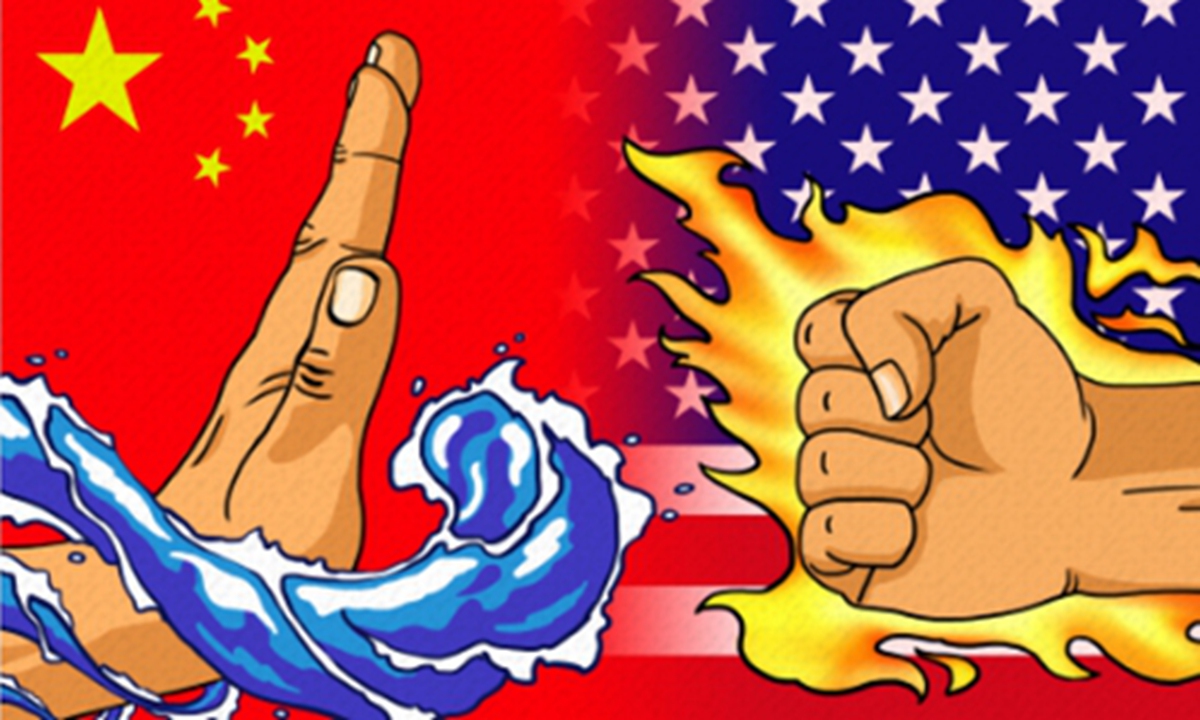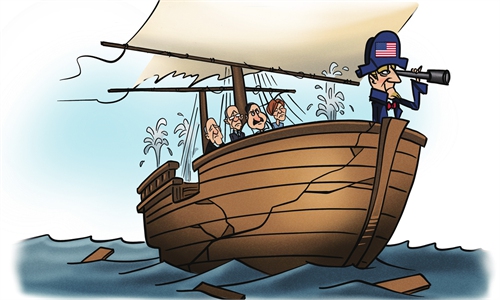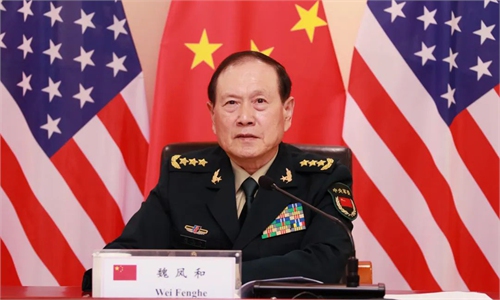Washington, don’t use lowering tariffs on China as a bargaining chip: Global Times editorial

Illustration: Liu Rui/GT
Over the past few days, senior US officials have frequently spoken out on the issue of lowering tariffs on Chinese goods. Jen Psaki, the White House press secretary, said on Monday that the Biden administration is reviewing whether to lift the Trump-era tariffs on Chinese goods, given a surge in consumer prices. "We talked about how some of the tariffs implemented by the previous administration were not strategic and instead raised costs on Americans," she said. Before that, US Secretary of the Treasury Janet Yellen and Deputy National Security Advisor Daleep Singh both signaled that the US was considering lowering tariffs on Chinese goods, imposed during the Trump administration, to help combat inflation.High inflation is a realistic background to the series of statements. US inflation surged to a four-decade high of 8.5 percent in March from the same month a year ago, the highest since December 1981. The US has witnessed six straight months of inflation above 6 percent, which is well above the Federal Reserve's average 2 percent target. Removing tariffs would be one of the easiest and most direct ways to ease inflationary pressure. According to a study by the Peterson Institute for International Economics, removing a series of tariffs imposed in the Trump era, including tariffs on Chinese imports, would reduce inflation by 1.3 percentage points.
Yellen said as early as last year that the tariffs of up to 25 percent on hundreds of billions of dollars in annual imports from China "contribute to higher prices in the United States." She has suggested more than once to consider lowering the tariffs. Katherine Tai, US trade representative, also raised the "recoupling" of the US and Chinese economies. At the same time, the number of supporters of removing or reducing tariffs is growing. Besides business groups, even some Republican lawmakers who supported the tariff war before have changed their stance, and say that some tariffs should be removed.
Washington relaxing tariffs imposed on Chinese goods is a return to rationalism. But it is easy to see that such a change in attitude is still unclear and even incomplete. In the discussion on "lowering US tariffs on Chinese goods," Washington focuses on "non-strategic goods" such as bicycles and apparel. Here lie two messages: First, the US shot itself in the foot by launching a "tariff war" with China. Second, on high-tech products such as chips, the US will still hold the idea of having China in a stranglehold. The general trend of cracking down on China has not changed.
If the Trump administration launched the trade war with China in a careless way, then the Biden administration intends to gain more extra advantage. Washington is good at profiting with little investment. It repeatedly stated that it "considers" lowering tariffs without taking real actions, while some US media outlets suggest some kind of "political exchange" with China by lowering tariffs on some non-strategic goods. This is political blackmail. In other words, Washington is so accustomed to playing the bully that it always wants others to pay for its own mistake, and to solve the problems it created.
The China-US trade conflict has been going on for four years. The results are clear: China hasn't succumbed to US maximum pressure but has effectively coped with the challenges. The past four years have witnessed rising import and export figures. Not only did China's imports and exports exceed $6 trillion in 2021, but trade with the US increased by nearly 30 percent year-on-year to $755.6 billion, a new high.
Many politicians in Washington have to admit that American businesses and consumers ultimately pay the tariffs slapped on China. Trump claimed a tariff war could solve many problems such as the trade deficit with China. But those goals ultimately were not achieved.
We want to stress that the US unilaterally imposed tariffs on China, which is neither reasonable nor legal. It has caused harm to China, the US and the world. As inflation continues to rise and the global economic recovery is facing challenges, what the US needs to do is remove all additional tariffs it imposed on China as soon as possible rather than fly trial balloons to repeatedly test China. Attempting to use lowering tariffs on China as a bargaining chip, Washington has made a wrong calculation. This can neither sway China nor help itself.



